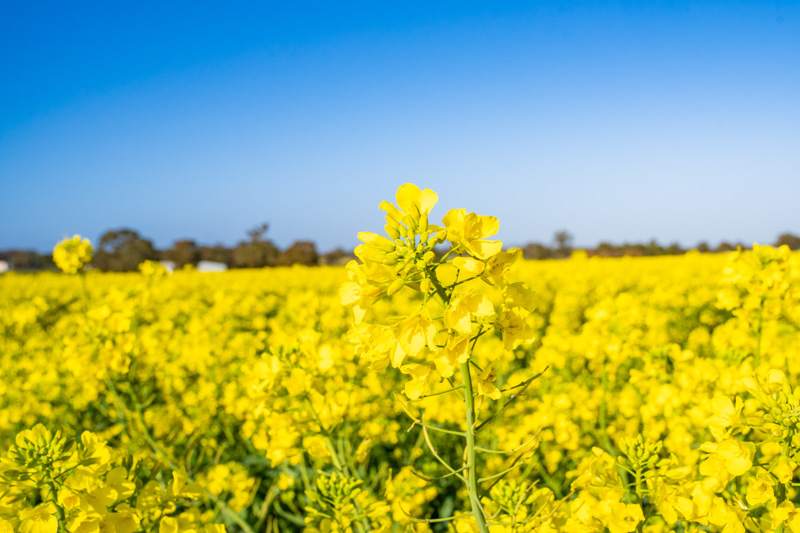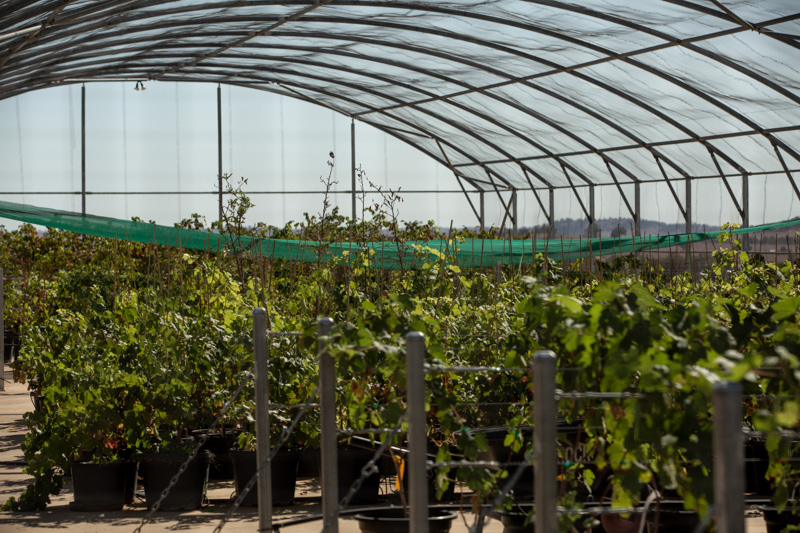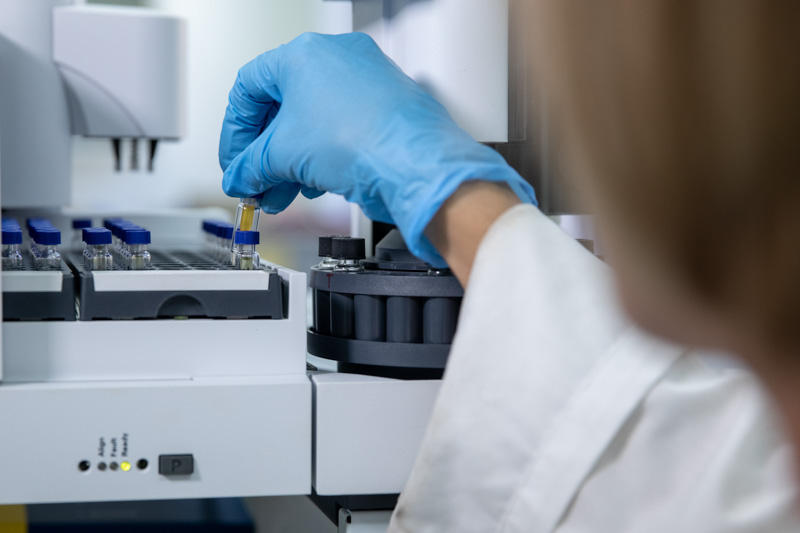Our research

The Institute conducts research in farming practices and agronomy, crop germplasm development and variety evaluation, oil science and more.
Current programs can be found below.
Farming Systems Agronomy
Collects agronomic research data for new wheat, barley, canola, and pulse varieties that will be synthesised into management packages for the south-eastern Australian cropping region.
Farming Practices
Provides the research, demonstration, advice and development required to encourage best management practice for southern NSW mixed farming. Current focus is on improvement of the feed base and reduction of the winter feed gap through inclusion of perennial grasses, weed and disease management and risk management of climate change and variability. Another major research area is the crop rotation and sequencing to make the most of the species sown plus including sheep in the experiments to ensure that results are applicable to mixed farming enterprises.
Field Crop Germplasm Development and Variety Evaluation
Working in conjunction with canola, barley, wheat and pulse breeding organisations to develop germplasm and evaluate cereal, oilseed and pulse varieties for production suitable to southern NSW.
Field Crop Protection
Conducts the plant pathology and entomology research, demonstration and advice relating to pests and diseases that limit yield and quality of crops and pastures in southern NSW. The entomology section also has a strong focus on grain storage management and monitoring chemical resistance in grain storage insects.
Beef Production Animal Nutrition
Develops growth prediction models for beef; assesses cereal forage, hay and silage quality; and is investigating the use of silage in production feeding systems to improve the content of omega-3 polyunsaturated fatty acids in meat.
Genetics (Molecular Biology)
Scientists conduct research on genome analysis of crop plants, and DNA barcoding to understand the complexity of biological processes and identification of agriculturally important insects, exotic arthropod pests and invasive weeds.
Horticulture and Viticulture
Horticulture and Viticulture research at WWAI focuses on several temperate perennial horticulture crops and is currently conducted in the Riverina, Batlow and Orange. Research underway includes assessment of new disease-resistant winegrape varieties, and studies in hazelnuts on plant nutrition, irrigation and reproductive development. Research in apple orchards is concerned with tree recovery from bushfire damage and reproductive development in relation to carbohydrate dynamics. The research continues to address the challenges of climate change and abiotic stress for the canopy and root environments.

DPI's Advanced Gene Technology Centre (AGTC)
A strategic investment of >$23 million, intended to enable new collaborations and co-investments and expedite the deployment of the next wave of genetic technologies across our research portfolio, ensuring our stakeholders are amongst the first to benefit globally from emerging methods. DPI can now develop and deliver new genetic technologies in-house, addressing key challenges such as enhancing the productivity and profitability of our industries, underpinning biosecurity and market access, delivering new options to manage natural resources and invasive species. The AGTC’s unique range of instruments enable a broad variety of approaches for developing, adopting and adapting high-throughput and at-scale delivery of new techniques for research, diagnostic and surveillance purposes and for all primary industries sectors. Approaches include rapid genomic sequencing and analysis, eDNA including metabarcoding, gene editing, and the transformation and screening of plant and animal cells. Specific techniques include short- and long-read DNA sequencing; DNA quality control; automated DNA extraction, liquid handling and reaction set up; tissue culture, manipulation and screening of mammalian and plant cells and embryos. The AGTC’s state-of-the-art workspaces are formally and externally certified to meet requirements of Physical Containment (OGTR and DAFF), as appropriate. High containment grow-out facilities for genetically transformed plants and insects have been designed and are approaching the construction phase.
Oil Science
The Australian Oil Research Laboratory (AORL) at WWAI is a world class accredited facility conducting research into the composition and organoleptic properties of olive oils and canola traits and has made a significant contribution to the high quality of Australian products.

Biosecurity
Conducts a range of programs to ensure the risk of animal and plant disease and pest incursion to southern NSW agriculture is minimised including monitoring, compliance and emergency management response. Working with industry to develop and maintain market access into other states and Territories.
WWAI Ag Enviro Laboratories
DPI Ag Enviro Labs, South (Feed Quality Service and Oil Testing Service)
As industry leaders, the DPI AgEnviro Labs are established as reference laboratories for the plant, livestock and olive industries, providing accredited testing techniques, systems and technologies. Accredited by the National Association of Testing Authorities (NATA), the laboratories provide independent, quality assured data to assist primary producers to improve the sustainability of their natural resources.
Feed Quality Service
The Feed Quality Service is the only laboratory in Australia which integrates research and commercial feed testing. Testing for parameters such as dry or organic matter, digestibility, crude protein, fibre, metabolisable energy, fat, ammonia and nitrogen content or pH levels of feed samples, the laboratory provides nutritional analysis of silage, mixed feed, total mixed rations, hay, pasture, grain, concentrates and forages utilising near infrared (NIR) and wet chemistry analyses.
Knowing the quality of feed or fodder can optimise the health and production of livestock and assist in accurately budgeting feed requirements and ensuring livestock management decisions are made with confidence.
Integrated with DPI’s world-leading researchers, the laboratory has access to fistulated cattle for advanced in vitro experiments for digestibility and methane potential of animal feed.
Oil Testing Service
The Oil Testing Service is qualified to classify Extra Virgin Olive Oil (EVOO) and virgin olive oil status, against the International Olive Council (IOC) standard and the Australian Standard AS5264-2011, and determine if products meet export standards.
Edible oils, olive fruit and oilseeds are unique products, with the quality influenced by a diverse range of factors including variety, fruit/oilseed maturity, harvest time, processing technology, grove/crop management, climate and storage conditions.
Understanding the chemical profile of edible oils, olive fruit or oilseeds determines the quality of the product, whilst olive oils that undergo organoleptic (sensory) assessment ensures the oil meets the extra virgin olive oil (EVOO) standard requirements set by industry bodies.
Further information can be found at www.dpi.nsw.gov.au/labs
DPI Ag Enviro Labs, South (Feed Quality Service and Oil Testing Service)